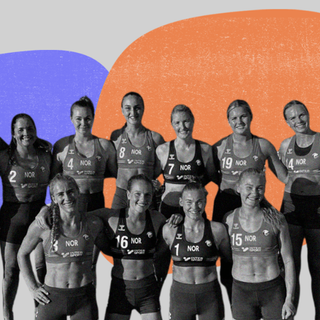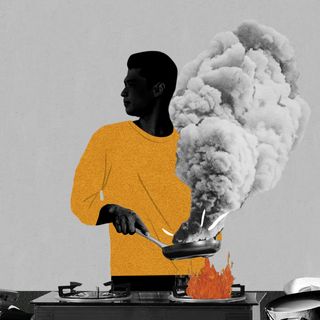
How the ‘Main Character’ Internet Trend Validates Our Need to Feel Seen
The “main character” trend allows people to pretend they’re special on the internet. and the self-awareness is what makes it endearing rather than narcissistic.
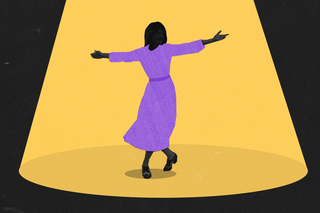
Almost every (good) internet trend that comes and goes has some measure of truth and authenticity to it. But none more so than #MainCharacter, which began sometime last year and continues to crop up to date. In Internet terms, this kind of longevity makes it one of the ‘greatest hits.’
The phenomenon has even psychologists weighing in on the narcissism inherent in it. Others participate in the trend as #NotTheMainCharacter. Some feel like it speaks to our present cultural zeitgeist. Like it or not, some version of it is here to stay. But what exactly is it?
It is, arguably, the lovechild of TikTok and the early aughts of the pandemic, creating a dark horse that continues to be the focus of internet cultural conversations. Colloquially called the Main Character Syndrome, the idea is to allow people to feel like the protagonists of movies about their lives.
Some versions of it involve acting like a corny rom-com lead, adopting poses and mannerisms reminiscent of a feisty and quirky character who is “not like other girls.” It could involve reels in which people coyly tuck a single lock of their hair behind their ear, or strolling gaily about a neighborhood. Sometimes, it could just be people tweeting about being the main character, to subvert something strange or embarrassing they have done. It may also be used to make fun of those who seem blissfully unaware of their self-centeredness.
So far, so good. But what is it about the trend that has psychologists worried? “The impact of Main Character Syndrome can vary significantly depending on its severity. In extreme cases, it can result in people losing touch with reality and becoming consumed by their worlds,” Shungu Hilda M’gadzah, a psychologist, told Glamour.
Some are concerned about its possible overlap with narcissistic tendencies. It isn’t an official scientific term yet and does not appear on any of the DSM manuals.
“The anonymity afforded by digital communication allows people to reinvent themselves, or, in extreme and potentially dangerous cases, to present entirely false versions of themselves, much more easily… It could be (somewhat brutally) suggested that main character syndrome, itself, shares traits with psychological problems, like narcissistic personality disorder, and any disorder involving delusions,” writes Phil Reed, a psychologist from Swansea University,
“Escape-maintained fantasy behaviors may also be a severe problem for those vulnerable to developing psychological issues, like anxiety and depression, and not just personality disorders,” Reed adds.
Such a reading has some import, amid general conversations about social media furthering narcissistic tendencies. But the underlying self-awareness and irony in the tone, which makes it such perfect meme fodder, is the missing piece that speaks to how the Main Character trend is perhaps one the most honest trends to come out of internet culture in recent times. It is self-referential of social media narcissism, for aren’t we all performing the main character-ness on our Instagram feeds every day, anyway?
Related on The Swaddle:
How Serotonin Became the Internet’s Symbol for Hope and Happiness
For one, it is clear that the trend is tongue-in-cheek in its irony. And it is this irony that makes users of the internet the authors of our current cultural script. The trend is a way of reclaiming many things at once: the loneliness of having to go through milestones under lockdown, the anxieties of collective erasure under climate change and political unrest, or simply more interpersonal troubles in early childhood that didn’t allow people to feel “special,” when sometimes, that’s all we need. It can be a way to cope with the dreariness, the unbearable ordinariness of real life, especially now.
“The “main character” meme indulges that desire to be seen — its relatability comes from how we all want a cute crush to lock eyes with us as we drudge through life, we want celebrities to spot us at concerts, we want to be singled out for being exceptional… We all crave some confirmation that, yes, our lives only seem to be ordinary and unremarkable, but they’re actually part of a greater story — the greatest story ever told,” writes Michelle Santiago Cortés, for Refinery29.
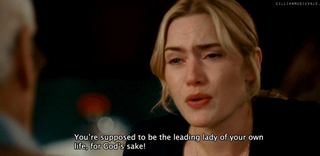
The trend is also a hopeful subversion of the irony that typically characterizes fatalistic, self-fulfilling humor about mental illness and existential sadness on the internet. In a rather on-the-nose paper titled “Damn I Didn’t Know Y’all Was Sad? I Thought It Was Just Memes”: Irony, Memes, and Risk in Internet Depression Culture,” Lucie Chateau writes: “In depression memes, polyvocality allows the user to identify with any number of anxieties effectively by the memes without being authentically tied to them, under the guise of irony.”
If “sad posting,” though ironic, is making us sadder, can main character syndrome make us feel more seen and valued? Or can this, too, become self-fulfilling and turn us into insufferable narcissists?
The key, it would seem, is empathy.
Narcissism and empathy are inherently antithetical to one another, psychologists note. And the response to individuals posting “main character” content is telling: rather than indifference, irritation, or “dunking,” the response is full of warmth and a shared sense of camaraderie, where everyone allows everyone else their “main character” moment in ways that few people in real life do.
Irony has served as a “Trojan horse” for white supremacy, misogyny, and bigotry masquerading as irony and “not serious.” By the end of the 2010s, writes Helen Lewis in The Atlantic, we were “forced to accept that we had been far too complacent about how dark politics could get, and how the ironically awful parts of the internet helped that to happen.”
This is what makes the irony of “Main Character Syndrome” so subversive: it is for people who haven’t had a chance to be main characters, celebrate and be celebrated for their momentary lapse into another character’s life, or turning their own into something special. It is, in other words, wholesome.
“Wholesome memes are post-ironic, meaning that they convey love, affection, and genuine friendship by recontextualizing classic meme formats,” writes Brian Feldman for New York Magazine. The main character meme can, arguably, be a subversion of memes that put others down to elevate oneself. “Me versus your GF” is a case in point.
“One might argue that wholesome memes are just a new form of an ironic meme, playing not on the structure of the memes but on the generally tongue-in-cheek and often self-deprecating nature of relatable memes,” Feldman adds.
We play pretend on the Internet all the time. But there is something to be said for how liberating it is to acknowledge the pretense and celebrate how it makes us feel. In an age where the big things — governments, the environment, health, and well-being — are under collapse, what does it mean to hold on to the little ones? Taking a moment in time and making it about ourselves and our mundanities at a time when individual lives seem to matter less than ever, it turns out, can be everything.
Rohitha Naraharisetty is a Senior Associate Editor at The Swaddle. She writes about the intersection of gender, caste, social movements, and pop culture. She can be found on Instagram at @rohitha_97 or on Twitter at @romimacaronii.
Related

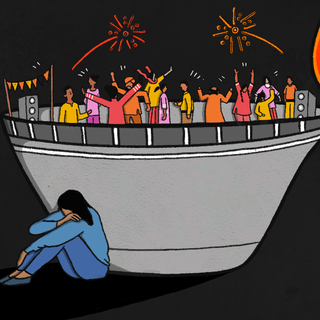
Why the Festival Season Can Feel So Isolating
